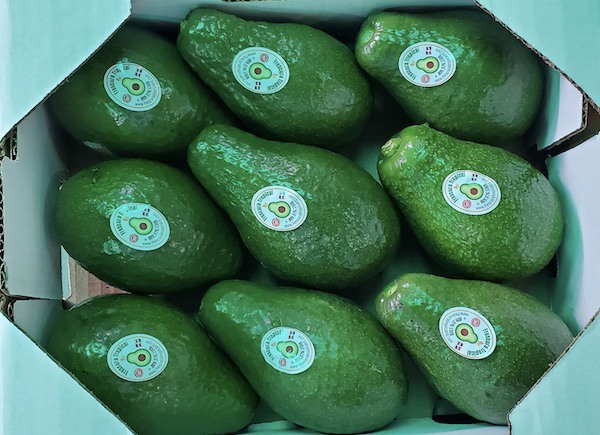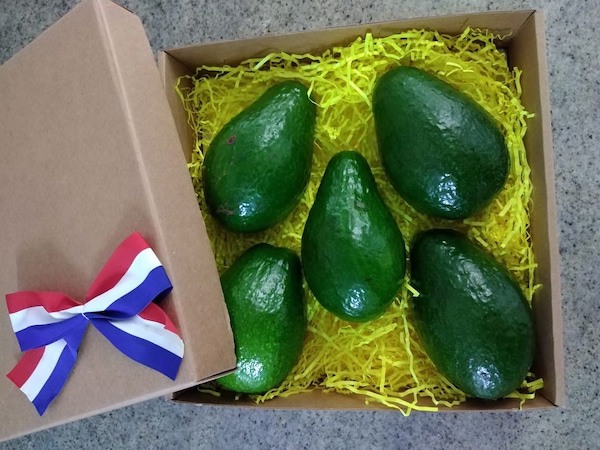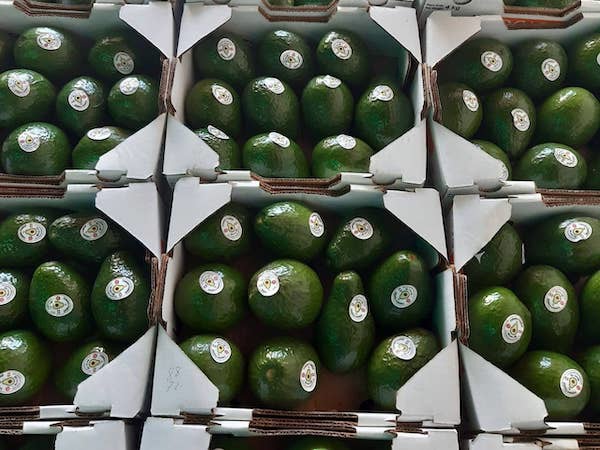While the Dominican Republic produces their Tropical Avocados year-round, the Semil variety of this fruit is the most demanded in the market due to its long shelf-life. The harvest for this variety started in September and these avocados will be available through February.

Growing US demand
The main destinations for the Tropical Avocados are in Europe, Central America, and the United States. Cesar Perez of Frescura Tropical says: “While the harvest already started in September, the US market only just opened for us - starting October 19th. Because there is domestic production in the US in Florida and California, the Dominican product isn’t allowed into the market until their seasons have wound down. The first product was sent on October 16th, to reach the ports of Miami on the 19th.”
There has been a big push to expand the demand in the US market - from the new brand, which has transformed the green skin avocados into Tropical Avocados, as well as thorough marketing campaigns. “We still export to Florida, and New Jersey because it makes the most sense logistically with only transit time - three days to Florida and six to seven days to New Jersey. Despite this, our buyers in Florida are distributing the Tropical Avocados throughout the country more and more. Specifically, the California and Texas markets have been growing a lot recently,” Perez shares.

The Dominican Republic’s logistical advantage
Due to its location, the Dominican Republic is able to ensure that the Tropical Avocados arrive at their destination with optimal freshness. “We are able to reach Miami within three days, the Port of Rotterdam in 9 days and the Port of Tilbury in the UK in 10-12 days,” Perez says. “When you compare this with the transit times from Peru or Colombia, which fall between 25-30 days, it’s really a great advantage. Not only does the fruit arrive super fresh, but the overall prices for transit are much lower too.”
In addition to shorter at-sea transit times, the size of the Dominican Republic also means that most farms are located only a few hours away from the nearest ports. “Even if the importers in Florida decide to distribute the fruit to the West Coast after arrival, the Tropical Avocados still arrive with optimal freshness and a good shelf-life when they hit retail shelves,” Perez explains.
One of the goals this year was to break into the Irish market with the Tropical Avocados, where Perez has been seeing good interest. “Unfortunately, Ireland’s location requires the avocados to be shipped by air and due to the pandemic the availability and pricing of air shipments are making it difficult for us to export there,” he shares.

Good harvest and sizing this year
While the Dominican Republic has been dealing with a drought this year, the majority of the Tropical Avocados has remained unharmed. “90% of the farms here in the Dominican Republic are irrigated naturally by rainfall, so we’re very dependent on the weather,” Perez says. “There was a little bit of damage to the farms in the north of the country, but all of the other farms have fortunately seen little to no effects from the drought,” he adds.
In contrast to the Hass avocados, Tropical Avocados are quite large. Since consumers are more familiar with the small Hass varieties, they prefer the smaller sized Tropical Avocados, Perez shares. “Mostly in Europe and in some parts of Central America, the market looks for smaller size Tropical Avocados. So we have good volumes of the 24s, which also have a creamier taste. The consumers like to be able to consume the entire avocado right away, like they are used to doing with the Hass avocados, which is why we see a higher demand for the smaller sizes of the Tropical Avocados. The larger sizes work really well with the foodservice industry - restaurants generally prefer the larger sizes because they are able to get much more fruit out of it,” he says.
To meet the increasing demand, the production of the Tropical Avocados is on the rise. “As of now, production volumes are increasing by 20-50% each year. We are seeing more and more farms start up and existing farms are optimizing their productivity, so there is plenty of supply to meet the increase in demand as more and more consumers are starting to discover and enjoy the Tropical Avocados,” Perez concludes.
 For more information:
For more information:
Cesar Perez
Frescura Tropical
Tel: +1 (809) 376-1508
Email: [email protected]
www.frescuratropicalrd.com










